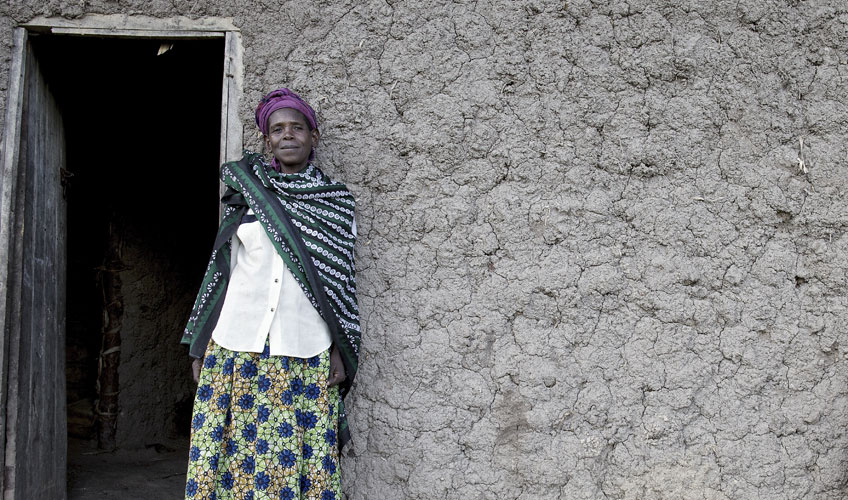The house that peace built: Monica’s story
“Initially, when the community facilitator came, we’d say: what are they talking about? Who would forgive? But look at me now. I sit together with the people who killed my children,” Monica tells us.

2019 marks the 25th anniversary of the Rwandan genocide against the Tutsis, where over one million people were killed. Neighbour turned upon neighbour and family member turned upon family member, everyone was affected.
Meet Monica
When we met Monica five years ago she was taking part in our reconciliation work in Rwanda. The project brought together genocide survivors, former combatants and ex-prisoners to help build peace and trust among them. Monica shares her story with us, telling us how the project was helping her she come to terms with losing her husband and children and how it was helping her to rebuild her life.
“I am a Hutu woman who was married to a Tutsi man. During the genocide my family was attacked by my brothers and father – they forced me to witness them slaughtering my six children and husband with pangas (machetes). I can still hear their screams of pain and terror. My father was screaming at me that it was my fault the family was murdered because I married a ‘snake,’ the local expression describing a Tutsi. All my brothers were jailed for the horrendous crimes they committed.”
The dialogue club members, both Hutu and Tutsi came together to build me a new home. My brothers were a part of the team. Without the club I would not be with my family. I am happy now.
This year, we went back to visit Monica to see how she is doing and find out what lasting effect the project has had on her, her family and her community.
“I feel like I have been relieved. Being part of the dialogue club and having trauma counselling has helped me accept what happened to me, move on and accept my family. I feel better now and have no fear like I used to. I feel like a burden has been lifted off me. The fact that the club continues to meet every week, without additional support, makes me feel safe.
After the genocide I didn’t have a place to stay. By giving me a home, the dialogue club members (both Hutu and Tutsi) made me feel like I belong. It won’t bring back my dead children, but it will help me feel part of the community again.”
For someone still trying to come to terms with their trauma, Monica’s advice to them is “seek help, get counselling and join a dialogue club. Without it I would not be where I am today. I used to drink all the time, but now I feel very confident.”
To the younger generation, I want to tell them to please never do what happened to us. Be different. Learn from our mistakes and do things differently in your lives.
Explore more stories to see how our trauma counselling, dialogue clubs and microfinance have helped to rebuild lives. And read about how trauma can also be passed through the generations within a family, affecting children who did not experience the genocide – find out how we helped them to cope and stop violence erupting again.
About the project
The Duhuze project helps to consolidate peace and inclusion in Rwandan society by enhancing citizens’ participation in and ownership of reconciliation processes, policies and programmes. This includes enhancing psychosocial support for young people affected by transgenerational trauma and improving trust among marginalised groups through inclusive dialogue processes and joint economic initiatives.
It also aims to strengthen the capacities of authorities, civil society organisations and companies to effectively implement reconciliation and build peace.
The project is being carried out in 1,260 communities from 21 sectors across seven districts: Gasabo, Gisagara, Huye, Musanze, Ngororero, Nyamagabe and Rubavu.
Alert works on this project with the following local partners: Association des Jeunes pour la Promotion des Droits de l’Homme (AJPRODHO) and Rwandan Association of Trauma Counsellors (ARCT – Ruhuka).







